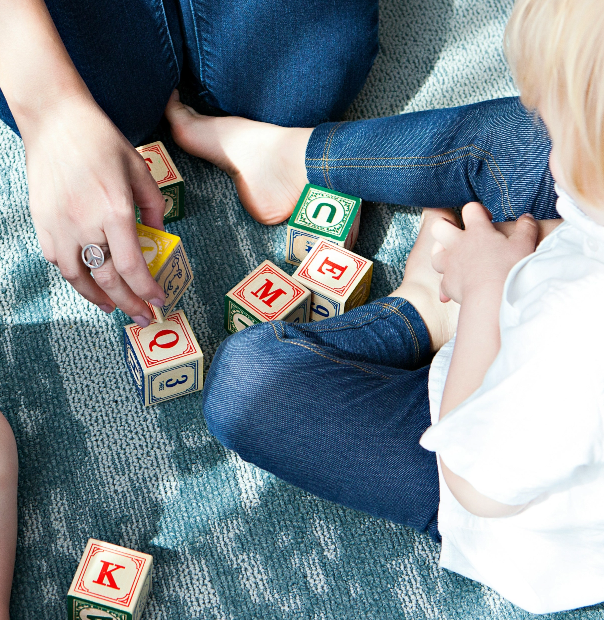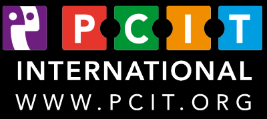Parent-Child Interaction Therapy
Parent-Child Interaction Therapy (PCIT) is an evidence-based treatment designed to help families strengthen their relationships and address challenging behaviors in young children. PCIT strengthens the parent-child relationship while equipping caregivers with effective tools to manage difficult behaviors. Through live coaching and structured sessions, parents learn to enhance positive interactions, improve communication, and foster emotional regulation in their child. Whether you are addressing tantrums, defiance, or parent-child conflict, PCIT offers a proven path toward lasting change and healthier family dynamics.

What Challenges Can PCIT Help With?
Parent-Child Interaction Therapy (PCIT) is designed to support families with young children who are experiencing difficulties in behavior and emotional regulation. It can be especially helpful for:
- Aggressive behavior toward siblings, peers, or adults.
- Attachment concerns or difficulty building secure relationships.
- Challenges with parent-child connection or communication
- Defiance, arguing, or difficulty following directions
- Early signs of social or emotional delays
- Frequent tantrums or outbursts
- Struggles with attention, impulsivity, or hyperactivity
- Transitions, family stress, or adjustment to change
- Trouble calming down or managing big emotions
- Trauma history or difficulty recovering from early adversity
Whether your child is having a hard time listening, expressing feelings appropriately, or navigating daily routines, PCIT offers tools to strengthen your relationship and create more positive, cooperative interactions.
How Does PCIT Work?
PCIT typically lasts between 12 and 20 sessions (about 3 to 5 months) consisting of weekly 45-minute sessions. In PCIT, the therapist serves as a coach, guiding caregivers in real time as they interact with their child. Parents are taught to be their child’s “play therapist,” practicing specific skills that strengthen connection, increase cooperation, and improve emotional regulation.
PCIT can be delivered in person or through telehealth. Telehealth offers a unique advantage: sessions take place in the child’s natural environment, allowing therapists to observe everyday interactions and support parents where challenges most often occur. This approach enhances skill use outside of sessions, promotes lasting change, and helps families build more peaceful, connected home routines.
PCIT consists of two phases: Child-Directed Interaction (CDI) and Parent-Directed Interaction (PDI).
The first phase of PCIT focuses on strengthening the parent-child relationship through positive, nurturing interactions. In Child-Directed Interaction (CDI), parents learn to follow their child’s lead in play using specific skills that promote warmth, connection, and emotional safety.
During this phase, caregivers are coached in techniques known as “PRIDE” skills:
- Praise – Giving specific, positive feedback to encourage desired behaviors
- Reflect – Repeating or paraphrasing what the child says to show understanding
- Imitate – Joining in the child’s play to show interest and approval
- Describe – Narrating what the child is doing to build language and focus
- Enthusiasm – Showing genuine enjoyment and encouragement
At the same time, parents are taught to reduce commands, questions, and criticism during play, creating a more positive and empowering environment for the child. This phase helps improve the child’s self-esteem, attention, and cooperation, while giving parents a powerful toolkit to nurture connection and reduce conflict.
In the second phase of PCIT, the focus shifts to teaching parents effective, consistent discipline and limit-setting strategies. During Parent-Directed Interaction (PDI), caregivers learn how to give clear, direct commands and follow through with consistent consequences when rules are not followed.
Parents are coached to use firm but calm instructions, helping their child understand expectations and boundaries. When necessary, parents implement time-out procedures or other consequences to address challenging behaviors in a safe and structured way.
This phase helps children develop better self-control, respect for limits, and improved behavior overall. It also empowers parents with confidence and skills to manage difficult moments calmly and effectively, strengthening the parent-child relationship while fostering a more peaceful and cooperative home environment.
Expected Benefits of PCIT
PCIT helps families build healthier, more positive relationships and develop effective skills for managing everyday challenges. As a result of completing PCIT, families often experience:
- Improved parent-child relationship characterized by warmth, trust, and positive communication
- Reduction in challenging behaviors such as tantrums, defiance, and aggression
- Increased child cooperation and better ability to follow instructions
- Enhanced emotional regulation and self-control in the child
- Greater parental confidence and skill in managing behavior calmly and effectively
- Stronger attachment and secure bonding between parent and child
- More peaceful, consistent, and predictable home environment
- Improved social skills and interactions both at home and in other settings
Families who complete PCIT often report feeling more connected and equipped to handle everyday challenges, creating a foundation for long-term emotional and behavioral well-being.
Contact us today for more information or to schedule an appointment at info@mailppa.com or 305-936-1002.
- Experiencing excessive worry or fears that interfere with daily activities
- Struggling to cope with new or stressful situations
- Having difficulty managing feelings of stress, nervousness, or panic
- Showing avoidance behaviors or reluctance to try new experiences
- Experiencing difficulty calming down after upset or frustration
- Finding it hard to express emotions in healthy ways
PCIT CALM is a tailored, coaching-based approach designed to help parents support their child’s emotional regulation and manage anxiety. Treatment typically involves:
- Weekly sessions lasting about 45 minutes, usually over 8 to 16 weeks depending on your child’s needs
- Real-time coaching where a therapist guides parents as they interact with their child, often via telehealth in the home setting
- Focus on building skills to help children face worries and fears with confidence
- Strategies to promote calm, emotional regulation, and healthy expression of feelings
- Support for parents to model and lead by example in managing stress and anxiety
- Practical tools that parents can use during everyday activities and challenging moments
- Ongoing feedback and adjustments tailored to your family’s progress
- This hands-on, supportive approach helps children develop resilience and fosters a calm, connected family environment.
PCIT CALM offers targeted support to families seeking to manage childhood anxiety and enhance emotional regulation. Through this specialized approach, families can expect:
- Improved ability for children to manage worry, fear, and stress in daily life
- Enhanced emotional regulation and self-soothing skills
- Increased confidence and resilience in facing anxiety-provoking situations
- Strengthened parent-child relationship through supportive, consistent interactions
- Greater parental competence in guiding and calming their child during difficult moments
- Reduced avoidance behaviors and improved engagement in daily activities
- Development of healthy communication patterns around emotions
- A more calm, structured, and emotionally supportive home environment
These benefits contribute to lasting positive changes that promote overall well-being for both children and their families.
What is PCIT CALM?
PCIT CALM (Coaching Approach Behavior and Leading by Modeling) is an innovative extension of traditional PCIT designed specifically to help families manage childhood anxiety and promote emotional regulation.This tailored approach combines the core principles of PCIT, strengthening the parent-child relationship and improving behavioral management, with specialized coaching to help parents guide their children through feelings of worry, fear, and stress. PCIT CALM equips caregivers with practical strategies to support their child’s confidence and coping skills in a calm, consistent way.
Teacher-Child Interaction Therapy (TCIT)
Teacher-Child Interaction Training (TCIT) is a structured coaching program modeled after PCIT but adapted specifically for use in early childhood education settings like preschools and childcare centers. The program helps teachers build positive relationships with young children while managing challenging behaviors effectively in the classroom. Through real-time coaching and practical strategies, TCIT promotes supportive interactions that encourage cooperation, emotional regulation, and social skills among children. By improving teacher-child interactions, TCIT helps create a calmer, more positive learning environment where all children can thrive.
PPA is proud to offer TCIT services directly at your school, providing on-site coaching to support teachers and promote positive classroom environments. Contact us today to schedule TCIT services for your school and help foster stronger, healthier teacher-child relationships.

Meet the PCIT Team

Professionals displaying this mark have met the certification requirements established by PCIT
For more information, you can visit the official website: PCIT.org
Whether your child is struggling with listening, expressing emotions, or handling transitions, PCIT offers practical, proven tools to support long-term success. Contact us today for more information or to schedule an appointment.






